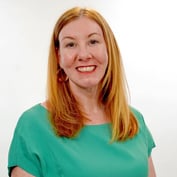Whether marketing to men or women, seniors or boomers, the industry must tailor its solutions to each individual.
The torch is being passed
As they have ever since they arrived on the scene en masse, baby boomers are making their presence felt in the retirement advisory business. Thus they are forcing advisors and the industry as a whole accustomed to dealing with the Silent Generation or even the Greatest Generation to change their marketing and selling techniques as well as product mix.
That was just one of the themes that emerged from Senior Market Advisor’s second annual Industry Survey, taken by over 250 advisors, carrier executives and marketing organization managers.
Perhaps thats why, as the retirement market shifts to baby boomers, services and products like 401(k) rollovers, life insurance, long-term care insurance and Medicare Supplements take on more importance.
Boomer top-of-mind concerns — how to accumulate and preserve a nest egg in the absence of pensions, the future of Social Security — are unlike those of seniors and must be addressed in distinctive services and products. Let’s not forget the difference when that boomer is a man or a woman. Yep, men and women are different and advisors must adjust their message accordingly. Truly, no one product or service fits every individual (see page 38).
Sick over health care
Forget what’s in their wallet. A medical bill in the mailbox is now what worries clients the most, or so say front-line industry pros.
With the economic seas calmed a bit and their personal financial status conceivably on firmer ground, clients now fret about health care and how it will impact their retirement. By a slim margin, health care overtook the economy as the top worry of consumers who seek financial and insurance advice.
But they have other worries too, like outliving their savings accounts and being tied to their office chair longer than they envisioned. All this implies that advisors must deal with an increasingly anxious clientele that require a fair bit of patience and hand-holding.
“Clients or prospects are generally more skeptical about making any changes to their financial picture, whether it’s in relation to asset allocation or an insurance product recommendation. There is certainly more skepticism among potential clients.”
~Ron L. Stahl
“Gone are the days of ‘I’ve got three plans…’ You really must do more in order to not simply get the sale, but keep it.”
~Eustace L. Greaves, Jr.

Here are highlights from SMA’s 2012 Industry Survey. We thank all those who participated. Check back next year to see how much — or little — has changed.
Business is booming…
Are the older baby boomers having an impact on your business?

“They (older boomers) are worried about the real possibility of how increased inflation and taxes and the high cost of medical and long-term care will impact their retirement. They are concerned about what I call ‘long on life and short on cash.’ ”
~David L. Spinner
“Many of them have to understand that retirement has become more their responsibility. They need to save and contribute more than they did in the past if they want to live comfortably in retirement.”
~James R. Veal
“I’m writing more annuity business as people are retiring and rolling over their 401(k) plans.”
~Robert Casey
“They are continuing to work longer to not outlive their income.”
~Carolyn Ramirez
“Some of these folks are retiring early and potentially looking for insurance needs outside of what their employer had previously offered. In some cases, there may be no or limited insurance benefits upon retirement. This seems to also be a time when income is changing and perhaps it is time to finally review life insurance again after putting it off for so many months or years. A lot of prospects who are healthy may be looking to get an individual health insurance policy until they get to Medicare age because their plan is not affordable or their employer is not helping to pay their premiums. Long-term care needs and investment concerns seem to also be addressed more actively at this point.”
~Ron L. Stahl
Do you market and sell differently to boomers than seniors?

“Senior and boomer clients are not the same. I do a lot of business with senior clients either in person or via direct mail, whereas business with my boomer clients is done more often over the Internet via email and in person.”
~Ron L. Stahl
“Seniors are concerned about leaving a legacy and having a say in how care is provided. Boomers have no time to make up losses and are concerned about not outliving their money. A return of their money could be as important as a return on their money.”
~Lloyd Lofton
“I have not made any distinctions between the two.”
~Ed Kaeser
“I approach every client as an individual regardless of age.”
~Darlene Tucker
Mars vs. Venus
Do you change how you sell and market when dealing with a man or a woman?

“No, not really. Most of my clients (85 percent) are women so I concentrate on women issues and challenges.”
~James R. Veal
“Men tend to be more impatient and have the ‘why should I do business with you?’ mentality. If a concept sounds good to a male prospect, then he usually acts quickly on it. With women prospects, there usually needs to be a more educational, trust-building approach. Females generally do not agree to do business immediately.”
~Ron L. Stahl
“Women—emotional purchase, how they feel about the topic. Men—logical purchase, their role in providing and longevity issues for them and their spouse.”
~Lloyd Lofton
“Both men and women are concerned about their money issues.”
~Michael Nieradka
“Conversations with men are more brief and driven around performance benefits. With women, the conversation entails more education and the answer to why is this going to solve their issue.”
~Rebecca True








 November 30, 2012 at 07:00 PM
November 30, 2012 at 07:00 PM













